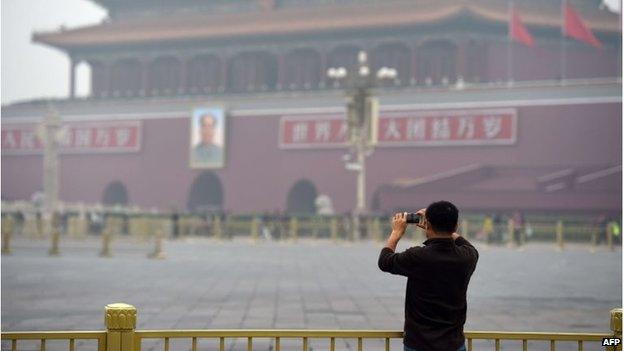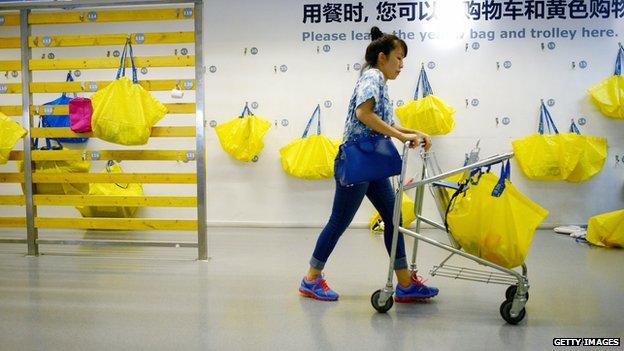Softening China's growth target
- Published

China's economic growth slowed to its lowest in more than five years in the third quarter
China's Premier Li Keqiang, Finance Minister Lou Jiwei and others have laid the groundwork over the past year to soften the growth target for GDP that has been in place since the first Five Year Plan under central planning over half a century ago.
While reiterating that the government's growth target of 7.5% can be met, the phrase "around" has been added to the target in various speeches and a range of 7.2-7.3% growth has been mentioned as being sufficient to meet the goal of creating jobs.
The latest growth figure is in that range. In the third quarter, China grew at 7.3%. It is the slowest pace since the first three months of 2009 during global recession, but faster than what economists were forecasting at 7.2%.
As compared with the second quarter of the year, GDP expanded by 1.9% which is slower than Q2 at 2% but above the 1.8% forecast.
Li Keqiang has said before that growing at 7.2% would create 10 million jobs per year, which is needed for the record 7 million Chinese graduates each year. But, of course, it's the quality of the jobs that will matter too.
Growth quality
On that front, how is the re-balancing of the economy coming along?
September's factory output is up 8% from a year earlier and has recovered some ground from the 2008 low hit in August.
It's consistent with 31 months of deflation or falling producer prices and consumer inflation slowing to just 1.6%, the lowest since the 2008 global crisis.
Consumption continues to hold up and has exceeded 48% of GDP for the first time.

China's government has been trying to encourage more consumer spending
For a country at this level of development, consumption is usually around half of GDP, so there are signs of re-balancing toward consumers and developing the services sector.
Correspondingly, retail sales have grown by 11.6% from a year earlier, while fixed asset investment rose by over 16% in first nine months of the year.
The pace of investment has gradually slowed; 2013 had registered nearly 20% growth.
With concerns over slowing price and growth, it's unsurprising that the Chinese government has been quietly supporting the economy by easing bank lending.
But, of course, that won't help raise the quality of growth that been too reliant on real estate and credit.
In the longer term, cementing the institutions to lay firm foundations for that market will be important.
Reforming the rule of law is the aim of the Fourth Plenum, the high level meeting of Chinese officials taking place in Beijing this week. That may ultimately prove to be more significant than the quarterly GDP release.
But, at a time where global markets are in turmoil, interpreting the short-term prospects of the world's second-largest economy will undoubtedly take on greater importance.
For more, watch Talking Business with Linda Yueh. Details of when to watch are at bbc.co.uk/talkingbusiness.